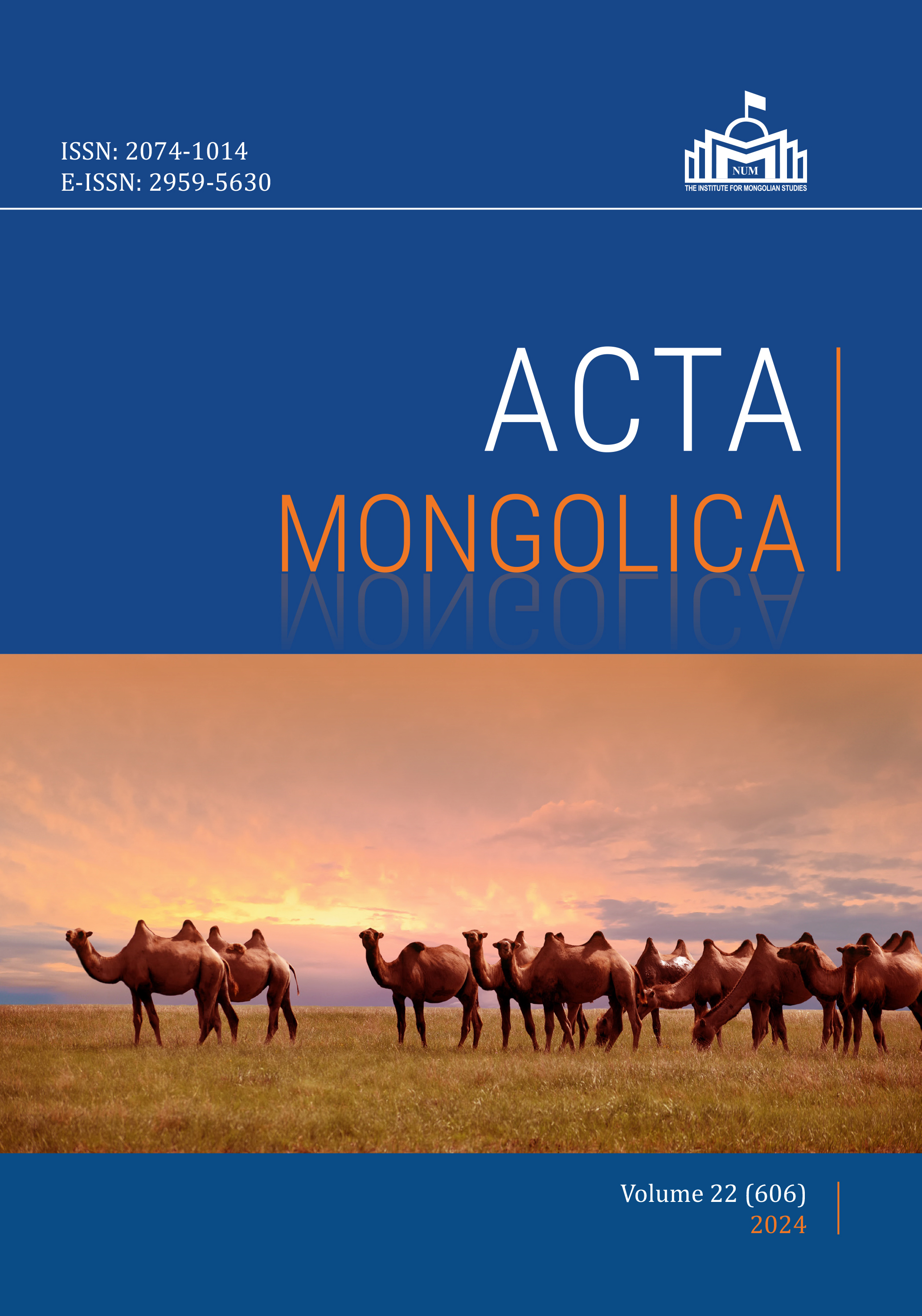Learners’ changes in the self-assessment of Mongolian language ability
Main Article Content
Abstract
In this paper, we used the CEFR self-assessment checklist to investigate whether there was any change in the student’s self-assessment of Mongolian proficiency within a period of about three months, from the start to the end of the course. Participants included 37 international students of the Mongolian language course at the National University of Mongolia. The results of the survey found that the average value of student self-assessment was significantly higher before the end of the course than after the start of the course, at both the elementary and intermediate levels. In addition, the average value of self- assessment was significantly higher before the end of the course in all areas of each level.
Article Details

This work is licensed under a Creative Commons Attribution-ShareAlike 4.0 International License.
References
Blanche, P., & Merino, B. J. (1989). Self-assessment of foreign-language skills: Implications for teachers and researchers. Language Learning, 39(3), 313–338. doi:10.1111/j.1467– 1770.1989.tb00595.x
de Saint Léger, D. (2009). Self Assessment of Speaking Skills and Participation in a Foreign Language Class. Foreign Language Annals, 42(1), 158–178.
Kavaliauskiene, G. (2004). Quality Assessment in Teaching English for Specific Purposes. English for Specific Purposes World 3, 8-17.
Luoma, S. (2012). Self-assessment. In C. A. Chapelle (Ed.), The encyclopedia of applied linguistics (pp. 5169–5174). New York: Wiley-Blackwell.
Oscarson, M. (2013). Self-assessment in the classroom. In A. Kunnan (Ed.), The companion to language assessment vol. II: Approaches and development (part 6: Assessment and learning, 712–729). New
York: Wiley-Blackwell.
Ross, S. (1998). Self-assessment in second language testing: A meta-analysis and analysis of experiential factors. Language Testing, 15(1), 1–20.
Schneider, G., & North, B. (2000). Fremdsprachen können-was heisst das? Zürich: Rüegger.
Suzuki, Y. (2015). Self-assessment of Japanese as a second language: The role of experiences in the naturalistic acquisition. Language testing, 32(1), 63–81.
Zimmerman, B., & Schunk, D. (2004). Self-Regulating Intellectual Processes and Outcomes: A Social Cognitive Perspective. In: D. Dai, & R. Sternberg (Eds.) Motivation, Emotion, and Cognition: Integrative Perspectives on Intellectual Functioning and Development. Lawrence Erlbaum
Associates, 323-349.

